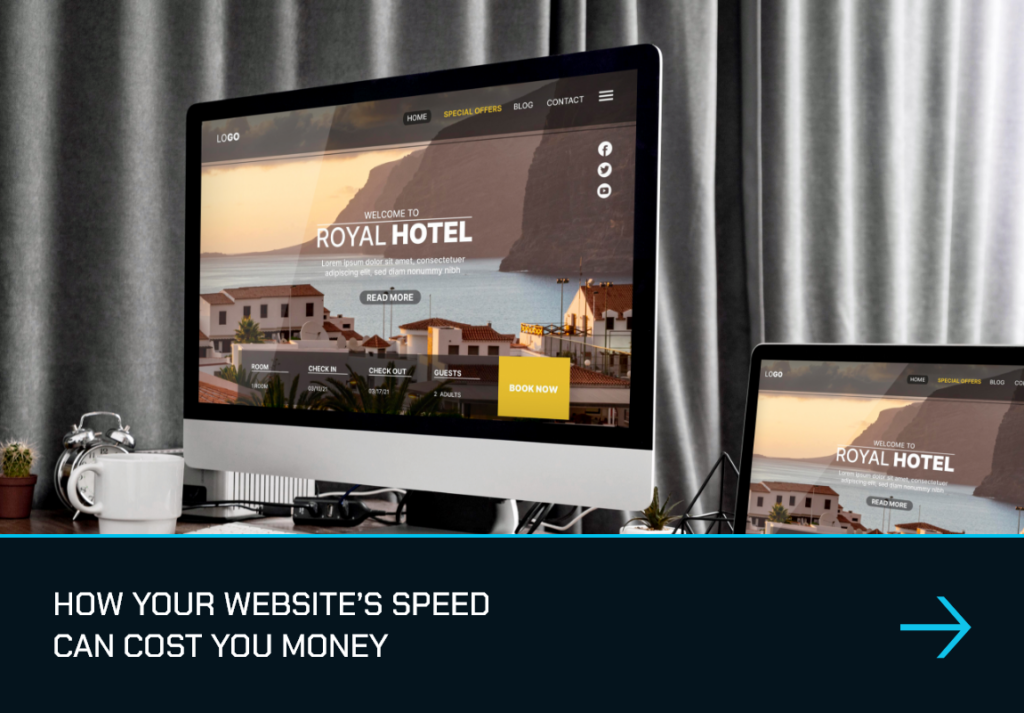When it comes to running a successful website for your business, loading speed matters. The difference between making a profit and losing a customer is sometimes determined by just one second. Yes, it’s that quick. The speed of your website has a direct impact on your conversion rate and some of the biggest websites use fast loading times to help boost their engagement and sales.
Picture this. You just found a great product online and and you’re eager to purchase it. You visit the company’s website and the page isn’t loading quickly. Okay, no big deal. You click the product to find out more about its features and.. it’s taking a while. It’s starting to annoy you, but you add it to the cart nonetheless. You click on the checkout button and it loads for more than 5 seconds. It’s so slow, you’re getting frustrated and you ended up leaving the website. The company has lost a potential customer and just missed a profit.
It might sound crazy at first, but in reality no one wants to wait for a slow website. Customers lose interest very quickly when they have to wait for a few seconds before they find what they’re looking for. That’s why it’s important to get your website up to speed so that your potential customers can purchase your products quickly before the painfully slow loading speeds change their minds.
What causes a slow website?
There are a number of factors that cause a slow website. If your website has slow loading speeds, it’s probably due to these issues:
- Large images that aren’t properly scaled for the web.
- Overuse of too many plugins (especially those that overlap with each other)
- CCS, PHP, and scripts that are poorly optimized.
- Bad web hosting
These are some examples of why a website is loading slowly. To further diagnose and address any further issues, you can try using free tools like GTMetrix to check your website’s loading speed and find out the other causes of your slow website.
How a slow website is costing your business potential revenue
Surveys conducted by websites such as Akamai and Gomez revealed that the loading speed of websites had a huge impact on customer decision when it comes to purchasing products online. The survey found out that 25% of desktop users will leave a website if it doesn’t load under 4 seconds. Mobile device users are slightly more patient, with a reported 30% willing to wait for a website to load in 6-10 seconds. Around 20% of mobile device users can tolerate up to 20 seconds of loading speeds.
The survey found out that one second of website loading speeds can have a huge impact on conversion rates. A one second delay in response time resulted in a 7% decrease in conversion rates which is incredibly high. Around 40% of internet users (both desktop and mobile devices) left a website that took longer than 3 seconds to load.
The key takeaway here is that slow website speeds affect not only the conversion rate of your business, but your credibility as well. Most internet users today have very little patience when dealing with slow websites and it can prove quite costly to your business if you don’t take necessary steps to improve it.
It does pay to be fast. If your sales are decreasing and your conversion rates are low, then you might want to take a look at your website’s loading speed and see if it’s up to par with most people’s expectations.
How to make your website load faster
There are a couple of steps you can take to ensure you have a speedy website. Follow these tips to increase loading times:
- Upgrade your web hosting plan. If you’re on a cheap web hosting plan, upgrade immediately to a better one. VPS (Virtual Private Servers) hosting is your best bet. It increases your website speeds by using multiple servers to effectively distribute your content.
- Use Gzip compression. Gzip works wonders in increasing website speeds by significantly reducing your website’s file sizes by compressing it. The compressed files will be automatically unzipped once your customer visits your website which in turn boosts your website’s speed.
- Optimize your images. Large images are one of the culprits for a slow website since they take up a lot of bandwidth. Optimize the size of your images correctly without negatively affecting its quality. Kraken is a good website for compressing images so make sure to try it out.
- Uninstall unnecessary plugins. If your website is bombarded with plugins that you don’t use anymore, it can affect the speed of your website negatively. Avoid using plugins that require a lot of styles and scripts and keep those that you use regularly.
Conclusion
Slow websites mean decreased profit and sales. That’s why it’s important to pay attention to your website’s speed so that customers won’t get bogged down waiting for slow loading times. Take the time and effort to tweak your website’s loading speed so that customers will have a positive user experience when visiting your website. It is always advisable to speak with your local SEO agency to get fully up to speed with regards to the importance of site speed.

